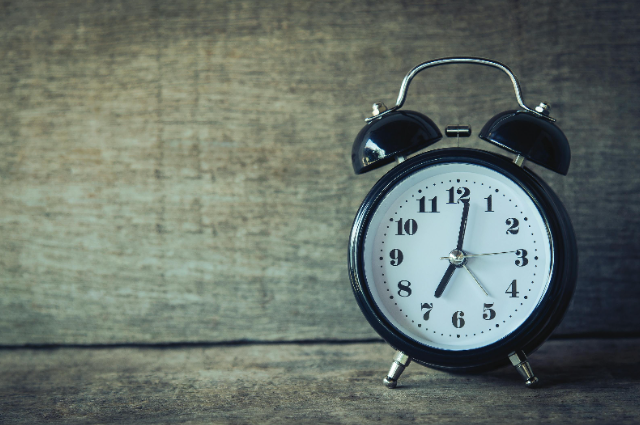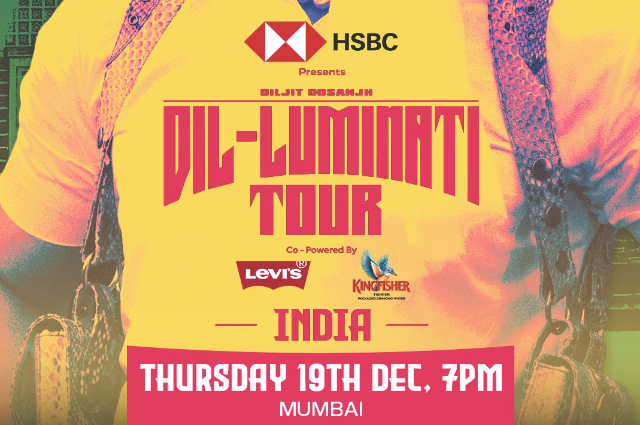
Photo by Pavol Svantner on Unsplash
Ticket scalping involves the automated purchase of event tickets using bots by allowing scalpers to resell them at inflated prices often up to 1,200% higher than face value. This practice creates artificial scarcity as scalpers buy large quantities quickly which leaves genuine fans with limited options. While some view scalping as a market-clearing mechanism, it primarily benefits scalpers and undermines fair access for fans. Legal frameworks vary globally with some regions implementing strict regulations against such practices, yet enforcement remains a challenge.
Concert Craze and the Menace of Ticket Scalping in India
In India, the excitement around concerts especially those by international stars like Coldplay and local favourites such as Diljit Dosanjh is at an all-time high. Fans rush to grab tickets, often enduring long waits and seeing shows sell out in just minutes. However, this enthusiastic demand has a downside—ticket scalping. Recent events, such as the ticket sales for Coldplay and Diljit Dosanjh concerts have highlighted the prevalent problem of unauthorized ticket sales. Many fans end up paying inflated prices or falling victim to counterfeit tickets. As this issue grows, understanding the legal aspects of ticket scalping becomes vital for fans.
Understanding Ticket Scalping in India
Ticket Scalping involves buying large quantities of tickets for popular events like concerts or sports matches using unethical means such as automated software or 'bad bots.' These tickets are then resold at higher prices, exploiting desperate fans who can't get tickets through legitimate channels. 'Bad bots' are software programs designed to mimic human behaviour, tricking websites and mobile apps to purchase tickets in bulk before real fans have a chance. In 2023, bot traffic surged in the global entertainment industry with 31.1% of all online activity attributed to these bad bots compared to just 13.5% from human users. This has aggravated the ticket scalping problem.
The excitement for concerts in India is being overshadowed by the growing issue of ticket scalping driven by unauthorized sales and bad bots. With the surge in bot traffic and the resulting ticket scalping, it becomes essential for fans to understand the legal framework and the implications of this practice. Addressing this issue is crucial to ensure fair access to tickets and protect fans from exploitation.
The Hidden Truth Behind Ticket Scalping
Ticket scalping is not as simple as it might appear—a random individual reselling concert tickets near a venue for a quick profit through systematic operation that thrives on strategy and precision. This practice often misunderstood revolves around two key principles: creating demand and perfect timing. Here's a closer look at how this works.
More Than Just Flipping Tickets
While the stereotypical image of a ticket scalper might be someone standing outside an event, the reality is far more sophisticated. Modern scalping is an organized industry involving individuals and companies who organize advanced techniques to buy tickets in bulk. These operations often utilize bots and software to outperform regular buyers by securing a significant portion of available tickets within minutes of release.
By controlling supply, scalpers engineer an artificial scarcity. This tactic plays on people’s fear of missing out (FOMO) by making tickets seem more desirable. Scarcity creates a sense of exclusivity that drives people to pay inflated prices just to ensure they don’t miss the event.
The Power of Demand and Desire
At the heart of scalping is the understanding that demand fuels desire. When tickets sell out quickly, it sends a clear message that this event is popular and valuable. Even those who were initially hesitant may feel compelled to purchase a ticket at a higher price simply because everyone else seems to want it.
Scalpers exploit this psychology to their advantage. By buying tickets in bulk and reselling them at inflated rates then they turn what could be a straightforward transaction into a high-stakes race. The higher the demand, the more people are willing to pay and making scarcity a profitable tool.
Timing: The Scalper's Secret Weapon

Timing plays an equally crucial role in the success of ticket scalping. Scalpers know exactly when to buy and resell for maximum profit. Early on, they secure tickets before the general public even has a chance often through pre-sales or special access.
Then, they carefully choose when to release these tickets back into the market. Sometimes, it’s immediately after the event sells out to capitalize on frustration. Other times, they wait until the event date approaches, backing on desperate last-minute buyers who are willing to pay any price. This strategic timing ensures they maximize their earnings while intensifying the pressure on consumers.
Far from a disorganized hustle, modern ticket scalping operates like a finely tuned machine. It combines technology, psychological tactics, and precise timing to dominate the secondary ticket market. As long as demand and exclusivity remain powerful motivators, scalpers will continue to exploit these dynamics for profit. While ticket scalping may seem like a harmless side hustle to some, its complicated operations and intentional manipulation of buyers highlight the need for greater awareness and potential regulation to protect consumers.
Whether it is illegal to resell tickets that you purchase on higher prices?
The question of whether it is illegal to resell tickets that you purchase has become a significant topic, especially in the context of high-demand events. Many individuals find themselves in situations where they buy tickets with the intention of selling them later for a profit. But is this practice against the law?
To explore this issue, we can examine a notable case of Mandeep Singh vs. UT of Chandigarh. In this case, Mandeep Singh, after finishing his studies in the UK, returned to India and worked as a freelance software developer. He managed to purchase five tickets for the highly anticipated India-Pakistan World Cup semi-final match held in Mohali. However, when he attempted to resell these tickets on eBay for £1,800 each—significantly above the official price set by the International Cricket Council (ICC) of Rs. 30,000 per ticket—he caught the attention of law enforcement.
The Police Investigation
An inspector, while browsing online, discovered Mandeep's ticket listings and decided to investigate further. He instructed Sub-Inspector Ashok Kumar to place an online bid for the tickets and provide his contact information. Mandeep responded by insisting that he would only sell the tickets for Rs. 1,25,000 each. To catch Mandeep in the act, Kumar arranged to meet him at a coffee shop in Chandigarh. During their meeting, they negotiated a price that ultimately settled at Rs. 24,000 per ticket. After completing the transaction and handing over marked currency notes, Kumar signalled his team to intervene by leading to Mandeep’s arrest.
Legal Charges and Defense
Following his arrest, Mandeep was charged under Section 66-A of the Information Technology Act and Section 420 of the Indian Penal Code for allegedly reselling World Cup semi-final tickets. In his defense, Mandeep sought to have these charges dismissed. He argued that Section 66-A had been invalidated by a Supreme Court ruling in Shreya Singhal v. Union of India, which deemed it unconstitutional.
Additionally, Mandeep contended that there was no evidence of dishonest intent required for a conviction under Section 420 of the IPC (which has since been replaced by Section 318 in the Bharitya Nyaya Sanhita, 2023). His argument suggested that simply reselling tickets does not necessarily imply an intention to cheat or defraud anyone.
The case of Mandeep Singh raises important questions about the legality of ticket resale practices in India. While many may see reselling as a legitimate way to profit from purchased tickets, legal implications can arise depending on how these transactions are conducted and perceived by authorities. This situation illustrates the fine line between entrepreneurship and legality in the realm of event ticket sales by prompting further discussion on regulations surrounding this common practice.
The Problem of Ticket Scalping: A Growing Concern Amid Diljit Dosanjh’s 'Dil-Luminati Tour'
The overwhelming excitement surrounding Diljit Dosanjh's Dil-Luminati Tour has unintentionally fuelled a troubling trend in ticket scalping. This practice involves buying concert tickets in bulk and reselling them at sharply inflated prices. As a result, many fans are left grappling with the challenge of securing tickets at reasonable rates. Foreign ticketing platforms like Viagogo have taken advantage of this trend by offering tickets for resale at prices that can be as much as ten times the original cost.
Teen Scammed of Rs 2.2 Lakh in Coldplay Ticket Fraud: Rising Cyber Fraud Amid Concert Excitement
The much-anticipated Coldplay concert has not only motivated excitement but also exposed vulnerabilities in online ticket purchases. In a troubling case from Chunabhatti, an 18-year-old and his friends collectively lost Rs 2.2 lakh to cyber fraudsters while attempting to secure tickets for the January event. This incident highlights the growing risk of online scams, particularly during high-demand occasions.
A Simple Search Leads to a Costly Scam
While searching online for concert tickets, the teenager came across a contact number that appeared authentic. With no immediate suspicion, he transferred Rs 7,000 through UPI to secure a ticket for himself. Encouraged by this seemingly successful transaction, he shared the contact with friends. Together, they proceeded to purchase 24 tickets by paying a staggering Rs 2.17 lakh.
Fake Confirmations Mask the Fraud
To appear credible, the scammers sent the buyers email confirmations from the address confirmation@book-my-show.co. At first glance, this closely resembled the official domain of BookMyShow, a trusted platform for event tickets. However, the teenager’s relative noticed indirect discrepancies in the email address by sparking concerns about its authenticity. This realization came too late—the group had already been duped.
Police Investigation and Legal Actions
After discovering the scam, the teenager filed an official complaint with the police. The Economic Offences Wing (EOW) initiated a preliminary investigation into a separate complaint filed by advocate Amit Vyas against BookMyShow by accusing the platform of involvement in ticket scalping. Meanwhile, BookMyShow proactively filed a first information report (FIR) at Vile Parle police station by targeting unidentified individuals accused of black-market ticket sales.
Lessons for Online Consumers

This case serves as a stark reminder of the risks associated with online transactions, especially during events that attract massive public interest. Fraudsters often exploit the urgency and excitement of buyers by using realistic methods to appear trustworthy. Consumers are urged to double-check the authenticity of sellers by scrutinizing email addresses, payment methods and rely only on verified platforms to avoid falling prey to similar scams.
As investigations unfold, this incident underscores the importance of vigilance in the digital age where the convenience of online purchases can come with significant risks if not approached cautiously.
Understanding Criminal Breach of Trust and Criminal Conspiracy Under Bhartiya Nyaya Sanhita, 2023
The Bhartiya Nyaya Sanhita, 2023 (BNS), introduces provisions to address various offenses including those involving trust violations and collaborative illegal activities. Two significant sections of this legislation by virtue of Section 316 and Section 61 are pivotal in understanding offenses like ticket scalping. Here’s a detailed look at these provisions and their applicability.
Section 316: Criminal Breach of Trust
Legal Definition and Key Elements
Section 316 of the BNS focuses on instances where a person entrusted with property misuses or fraudulently converts it for personal benefit. It applies when:
A. The individual is entrusted with property or control over it.
B. The person dishonestly misappropriates, converts, or uses the property in violation of legal directions or contractual terms.
C. Alternatively, the individual allows others to misuse the property dishonestly.
This offense is essentially a violation of trust where the entrusted individual acts against the interests of the rightful owner by breaching the agreement or legal obligations related to the property.
Relevance to Ticket Scalping
The concept of criminal breach of trust finds application in cases of ticket scalping. Ticket scalping refers to the resale of tickets, often at inflated prices, typically in violation of the terms set by official ticket sellers.
For instance, if an authorized platform like BookMyShow explicitly states in its terms and conditions that tickets are non-transferable or non-resellable, anyone entrusted with selling or distributing these tickets violates the agreement by:
A. Selling the tickets at higher prices in the black market.
B. Engaging in unauthorized reselling practices for personal profit.
In such scenarios, the primary buyers or distributors misappropriate the tickets by violating the trust placed in them. Thus, their actions could be classified as a criminal breach of trust, provided they contravene the stipulated terms of sale.
Section 61: Criminal Conspiracy
Legal Definition and Framework
Section 61 of the BNS addresses instances of criminal conspiracy, defining it as an agreement between two or more persons to:
- Commit an illegal act.
- Commit a legal act through illegal means.
However, for such an agreement to be classified as criminal conspiracy, at least one of the conspirators must take an overt action in furtherance of the plan. This clause ensures that mere discussions or intentions without corresponding actions do not constitute a crime.
Applicability to Organized Ticket Scalping
Ticket scalping often goes beyond individual actions and involves organized efforts by groups or networks. In such cases, Section 61 becomes crucial as the illegal nature of their activities centres on the methods and intent. For example: A group conspiring to buy event tickets in bulk for resale might use deceptive tactics such as multiple fake accounts or forged identities. While the act of buying tickets is legal, using fraudulent methods to bypass seller restrictions transforms the activity into a criminal conspiracy. The section specifically targets the collaborative effort and shared intent to profit unlawfully which defines the essence of organized scalping operations.
Legal and Ethical Implications
Both Section 316 and Section 61 emphasize the importance of intent and action in defining offenses. The misuse of entrusted property under Section 316 highlights the moral breach in ticket scalping where sellers prioritize profit over fairness. Similarly, Section 61 underscores the role of collective planning and dishonesty in amplifying the scale of such unethical practices.
By including these provisions, the Bhartiya Nyaya Sanhita, 2023 not only aims to deter fraudulent activities but also seeks to uphold the principles of trust, transparency and accountability in economic transactions.
The provisions of Sections 316 and 61 of the BNS provide a robust framework to address offenses such as ticket scalping. They focus on two key aspects—the breach of trust and organized deceit which together create an unfair advantage for some at the expense of others. These legal mechanisms when enforced effectively then they have the potential to curb such unethical practices by ensuring a level playing field for all stakeholders.
Protecting Consumers: Tackling Ticket Scalping in India
Consumer Protection Act, 2019 and E-Commerce Rules, 2024
The Consumer Protection Act, 2019 is designed to shield consumers from unfair trade practices including deceptive marketing tactics. Ticket scalping can be classified as an unfair practice because it prevents consumers from purchasing tickets at their original price. This practice falls under Clause 47(v) of the Act, which defines "unfair trade practice" as any trade practice that promotes the sale, use, or supply of goods or services through unfair or deceptive methods, including the hoarding or destruction of goods, refusal to sell or making them available only at inflated prices.
Hoarding and Reselling of Tickets
In the case of Coldplay tickets, several entities hoarded the tickets with the intention of reselling them at much higher prices, thus engaging in unfair trade practices. The Consumer Protection (E-Commerce) Rules, 2020, prohibits e-commerce websites and sellers on marketplaces from adopting unfair trade practices. Rules 4 and 6 specifically state that no e-commerce entity or seller should engage in such practices whether in the course of business on its platform or otherwise.
Manipulation of Ticket Prices
Rule 4 (11) of the E-Commerce Rules elaborates on unfair trade practices by stating that no e-commerce entity should manipulate the price of goods or services to gain unreasonable profit. This includes imposing unjustified prices on consumers based on market conditions or extraordinary circumstances. Instances where third-party websites like Viagogo listed Coldplay tickets, originally priced at ₹6,500, for amounts as high as ₹75,000, clearly violate these rules.
Legal Actions and Penalties
When unfair trade practices like ticket scalping are identified, the E-Commerce Rules empower the Central Authority under the Consumer Protection Act, 2019, to take action. If an investigation reveals a violation of consumer rights or engagement in unfair practices, the Authority can issue orders under Section 20 (c) of the Act to discontinue such practices. Non-compliance with these orders can result in penalties under Section 88, which may include imprisonment for up to six months and fines upto twenty lakh rupees or both.
Crackdown on Illegal Ticket Sales
Legal measures against ticket scalping can involve arresting offenders, imposing fines, or cancelling scalped tickets. For example, during the IPL in April 2024, twelve individuals were arrested in Chennai for the illegal sale of tickets for a match between Chennai Super Kings and Lucknow Super Giants. The police seized 56 tickets worth ₹1.4 lakh during a surveillance operation at MA Chidambaram Stadium, effectively curbing the illegal activity.
The Consumer Protection Act, 2019, and the E-Commerce Rules, 2024, provide a robust framework to combat unfair trade practices like ticket scalping. By enforcing these regulations, the authorities can protect consumers from exploitation and ensure fair access to tickets, thus maintaining the integrity of the ticketing system in India.
The Legal Landscape of Scalping: A Global Perspective
Scalping, the practice of buying tickets to events and reselling them at a higher price has been a contentious issue for decades. The legality of scalping varies significantly across different countries by reflecting diverse cultural, economic, and legal frameworks.
A Closer Look at International Regulations

Image by jessica45 from Pixabay
- United States: While scalping is generally legal in the United States, specific state laws impose restrictions. For instance, New York prohibits reselling tickets above face value within a certain radius of event venues. California, on the other hand, bans scalping on event grounds.
- United Kingdom: In the UK, scalping is not complete illegal, but it's subject to strict regulations. The Consumer Rights Act of 2015 mandates that resellers disclose essential information such as the original ticket price and any applicable restrictions.
- Canada: Canadian provinces have varying stances on scalping. Ontario and British Columbia, for example, have enacted laws to curb excessive price hikes. Ontario limits resale prices to 50% above face value, while British Columbia sets a more stringent cap of $5.
- Australia: Similar to Canada, Australian states have differing regulations. Victoria and Queensland prohibit reselling tickets at prices exceeding 10% of the original value. However, Queensland imposes a higher 30% cap for entertainment events.
- Japan: Japan takes a strict approach to scalping with the Ticket Scalping Prevention Law prohibiting the resale of tickets above face value. This law applies to both physical, digital tickets and violators can face legal consequences.
A Complex Issue with Global Implications
The legality of scalping is a multifaceted issue influenced by various factors including consumer protection, fair market practices and the economic impact on event organizers. While some countries have adopted stringent measures to combat scalping others have a more lenient approach. As the global entertainment and sports industries continue to evolve, the debate over scalping is likely to persist. Consumers should be aware of the legal landscape in their respective countries and exercise caution when purchasing tickets from secondary markets.
Viagogo: A Platform Profiting From Demand
Viagogo operates as a secondary ticket marketplace by providing a space for individuals to resell their tickets. Its pricing model is dynamic and adjusting based on the principles of supply and demand. When tickets for an event like Diljit’s concert are scarce and interest skyrockets, the prices on such platforms surge dramatically. This system allows sellers to capitalize on the desperation of buyers eager to attend sold-out shows.
However, the cost of tickets on Viagogo doesn’t stop at resale prices. The platform also imposes significant commissions on sellers and charges additional fees to buyers, further inflating the overall expense. These added costs make it even harder for average fans to afford tickets, worsening frustrations.
Regulatory Challenges and the Role of Indian Authorities
A critical issue lies in the inability of Indian authorities to effectively regulate transactions conducted on international platforms like Viagogo. Since these platforms operate overseas, tracking and monitoring their activities becomes a challenging task. This lack of oversight has made it nearly impossible to curb the growing problem of ticket scalping in the country.
Public Outrage Over Scalping Practices
Ticket scalping has sparked widespread public frustration, particularly among fans of popular artists like Diljit Dosanjh and Coldplay. For these high-demand events, tickets often sell out within seconds only to reappear on third-party platforms at higher prices. This phenomenon has led to rising calls for stricter laws to prevent the resale of tickets at inflated rates.
Legal Action and the Push for Regulation
In response to this pressing issue, a Public Interest Litigation (PIL) was filed in September in the Delhi High Court. The petition emphasizes the need for clear regulations governing online ticket sales by aiming to protect consumers from exploitation and ensure fair access to concert tickets. The outcome of this legal challenge could pave the way for stronger measures to address ticket scalping, offering hope to fans who simply want to enjoy live performances without breaching any credit card limits.
The Path Forward
As the debate around ticket scalping intensifies, it highlights the need for comprehensive solutions. Stricter legal frameworks, improved monitoring of ticket sales and enhanced consumer protection are essential to tackle this growing issue. Only through coordinated efforts can authorities ensure that concert experiences remain accessible to all rather than becoming exclusive to those willing to pay exorbitant premiums price.
The recent frustration among fans over Coldplay ticket sales has underscored a rising dissatisfaction with the current ticketing system in India. The excitement of seeing favourite artists perform is being flawed by the sense of exploitation from scalpers. This has sparked discussions on the need for stricter regulations and fairer practices within the ticketing industry.
Current Legal Framework for Ticketing Regulation in India
At present, there is no specific legislation in India that directly addresses ticket scalping. However, there are several legal frameworks that can be utilized to combat this issue:
- Consumer Protection Act, 2019: Provides redressal against unfair trade practices.
- Bharatiya Nyaya Sanhita, 2023: Addresses offenses including petty organized crime.
- Competition Act, 2002: Tackles abuse of dominant market positions.
Role of Ticketing Platforms
Many ticketing platforms have terms of service that ban the resale of tickets at inflated prices. Fans can report scalpers on these platforms, which can result in account suspensions or ticket cancellations.
Public Demand for Action
The widespread discontent over Coldplay ticket sales has led to legal actions against the ticketing platform and event organizers. Fans have also taken to Coldplay's official social media pages to demand accountability from both the platform and the organizers.
Necessity for Stringent Regulations
The lack of stringent laws regulating ticket sales in India could eventually lead to the deterioration of the live entertainment scene. It is crucial for the government and regulatory bodies to take immediate action to protect fans from unfair practices and ensure a fair ticketing process.
Conclusion
Lastly, if the government does not regulate such ticketing SCAMs then they will eat up the whole entertainment industry market soon. There implications may extend to cricket shows, movie tickets, trade-fairs and many other places. The ticketing industry in India urgently needs reform. The government and regulatory bodies must collaborate to establish a fair and transparent system that safeguards fans from exploitation. Such measures are essential for the live entertainment scene in India to flourish in fair manner.
. . .
References:

